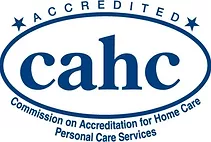Whether you’re at risk of heart disease or already living with a heart condition, awareness and action are your best allies. The more we understand heart disease the signs, the symptoms, and the risks the better equipped we are to take charge of our health.
Heart disease affects millions of people worldwide and it’s the leading cause of death in the United States. People living with heart problems often face physical limitations, emotional stress, and changes in their daily routines. Some of the common challenges include:
1. Fatigue and Limited Energy: Many heart conditions can lead to fatigue and shortness of breath, making simple tasks like walking upstairs or even getting out of bed more difficult. The heart may not pump blood as efficiently, depriving the body of the oxygen it needs.
2. Emotional Strain: Dealing with heart disease can be emotionally taxing. Individuals may experience anxiety, depression, or stress, especially if their condition leads to frequent hospital visits or lifestyle restrictions. Learning to manage these emotional burdens is as important as managing the physical symptoms.
3. Dietary and Lifestyle Changes: Living with heart disease often requires individuals to make significant lifestyle changes, especially around diet and exercise. Managing blood pressure, cholesterol levels, and blood sugar may involve carefully monitored diets and regular physical activity choices that can feel overwhelming at times.
4. Medication and Treatment Regimens: Most heart conditions require lifelong treatment with medications, which can have side effects. Some individuals may also need procedures depending on the severity of their heart disease.
Protecting Your Heart Before It’s Too Late
While living with heart disease is challenging, it is often preventable or manageable through lifestyle changes, awareness, and early intervention. Here’s how you can reduce your risk of developing heart problems in the first place.
1. Know Your Risk Factors: Heart disease is often linked to risk factors such as high blood pressure, high cholesterol, diabetes, smoking, excessive alcohol consumption, and a sedentary lifestyle. Understanding your risk factors and actively working to reduce them can be the key to preventing heart disease as well as regular check-ups and screenings to track these factors over time.
2. Adopt a Heart-Healthy Diet: A balanced diet is crucial for heart health. Opt for foods rich in nutrients such as whole grains, fruits, vegetables, lean proteins, and healthy fats. Reducing your intake of salt, sugar, and saturated fats can help prevent high blood pressure, high cholesterol, and other risk factors.
3. Exercise Regularly: Physical activity strengthens the heart and improves circulation. Aim for at least 2 hours of moderate-intensity exercise per week. Even activities like walking, swimming, or cycling can improve heart health and reduce the risk of heart disease.
4. Quit Smoking and Limit Alcohol: Smoking is one of the leading causes of heart disease. It damages blood vessels, increases blood pressure, and raises the risk of clot formation. Quitting smoking, along with limiting alcohol consumption, can significantly improve heart health.
5. Manage Stress: Chronic stress can negatively affect your heart by raising blood pressure and triggering inflammation. Finding ways to relax and reduce stress such as through mindfulness practices, yoga, or hobbies can help protect your heart in the long run.
Signs and Symptoms of Heart Disease
Recognizing the warning signs of heart disease is essential. Common symptoms include:
• Chest pain or discomfort
• Shortness of breath
• Lightheadedness or dizziness
• Pain in the neck, back, jaw, or stomach
• Swelling in the legs or ankles If you experience any of these symptoms, seek medical attention immediately.
How to Manage and Take Care of Your Heart
If you’ve already been diagnosed with heart disease, it’s not too late to take control of your health. Here’s what you can do to manage your condition and live your life to the fullest:
• Regular consultation with your doctor to monitor your heart condition, adjust medication and suggest lifestyle changes.
• Follow your treatment plan to prevent complication and always consult with your doctor any concerns you may have before the treatment starts.
• Monitor your symptoms, especially on how your body responds to treatment.
• Incorporate healthy habits into your daily life focusing on your diet, exercising and getting enough rest.
• Stay positive and seek support from family, friends, or support groups.
Don’t wait for a diagnosis to start taking care of your heart. The steps you take today can improve your heart health for years to come. Remember, your heart is the center of your body treat it with care, and it will serve you well.
Resources:
https://www.dulyhealthandcare.com/health-topic/heart-smart-at-every-age-a-lifelong-guide-to-heart-health
https://www.goredforwomen.org/en/about-heart-disease-in-women/living-with-cardiovascular-disease/living-with-heart-disease-youre-not-alone
https://www.cdc.gov/heart-disease/php/heart-month/index.html
https://publichealth.uci.edu/2025/01/31/heart-health-awareness-month-simple-steps-to-a-stronger-heart/
- The Superfood You Shouldn’t Miss - April 9, 2025
- First Home Care Visit? Here’s The Inside Scoop - April 9, 2025
- Are Seniors Ready for a Disaster? - April 7, 2025


